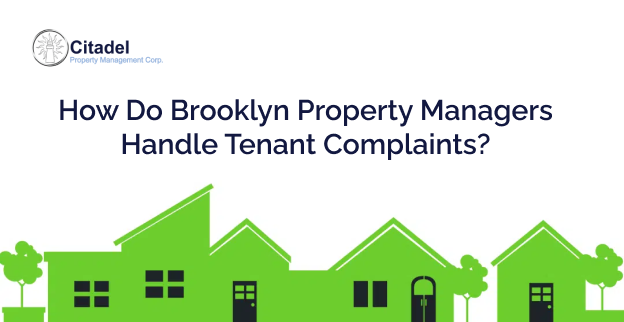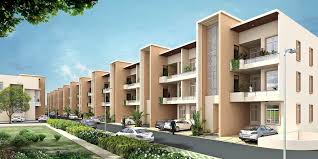
Brooklyn is one of the most favorable boroughs in NYC for buying or renting a property. It is a more affordable borough than Manhattan. In September 2024, the median listing price of a home in Brooklyn was $849k, with a per-square-foot price of $767. The borough is a home for numerous families, working professionals, artists, freelancers, and students.
With a pace in development, the need for managing property in Brooklyn is also increasing. It gives rise to the need to hire property managers. A property manager efficiently manages and maintains the property on behalf of the owner, attracting potential tenants and handling their grievances.
This blog provides an overview of the Brooklyn property managers and elaborates on what they do, why you need them, and how effectively they handle tenant complaints.
What is a Property Manager?
A Property Manager is a professional responsible for overseeing the daily operations and maintenance of real estate properties on behalf of the property owner. Their role involves managing residential, commercial, or industrial properties and ensuring they are well-maintained, financially viable, and in compliance with relevant regulations.
Property managers handle a wide range of tasks, including tenant relations, rent collection, lease agreements, property inspections, maintenance coordination, and addressing tenant complaints or issues. They may also be involved in marketing vacant properties to prospective tenants, screening applicants, and facilitating lease renewals.
Let’s explore in detail what a property manager does.
What Does a Property Manager Do?
A Property Manager plays a crucial role in maintaining, overseeing, and enhancing the value of real estate assets, whether residential, commercial, or industrial. They act as a bridge between property owners and tenants, ensuring smooth operations, tenant satisfaction, and optimal financial returns. From managing tenant relations to handling property maintenance, their responsibilities encompass a wide range of activities that support the property’s financial health and regulatory compliance.
Here is an overview of the functions or duties of a property manager.
1. Tenant Management
Property managers handle tenant relations, including lease agreements, screening, and addressing complaints. They aim to ensure positive tenant experiences while reducing turnover, which helps maintain stable occupancy and income for the property owner.
2. Rent Collection and Financial Reporting
They oversee rent collection, manage late payments, and address non-payment issues. Additionally, property managers prepare financial reports, track expenses, and submit regular updates to property owners, helping them make informed financial decisions.
3. Maintenance and Repairs
Property managers coordinate routine maintenance, emergency repairs, and inspections to ensure the property is safe and well-maintained. They work with contractors and vendors to address issues promptly, maintaining the property’s value and tenant satisfaction.
4. Marketing and Leasing
When units are vacant, property managers advertise them, show properties to prospective tenants, and handle leasing paperwork. Effective marketing and leasing practices reduce vacancy rates, ensuring steady revenue for property owners.
5. Regulatory Compliance
Property managers stay up-to-date with local real estate laws, safety codes, and regulations. They ensure that the property adheres to legal requirements, helping owners avoid fines and maintain compliance with property regulations.
Why Do You Need a Property Manager?
Hiring a Property Manager can be invaluable for property owners, especially those with multiple properties, limited time, or limited knowledge of property management. Property managers handle the complexities of real estate management, from tenant relations to financial oversight, relieving owners of day-to-day responsibilities. Their expertise ensures smoother operations, better tenant retention, and regulatory compliance, all of which contribute to the property’s profitability and value.
Here are some reasons why you need a property manager.
1. Professional Tenant Management
Property managers like Citadel Property Management Corp. streamline tenant-related tasks, from screening and leasing to handling complaints. They implement consistent processes that reduce turnover, ensuring stable occupancy and fostering positive tenant relations, which ultimately benefit the property’s long-term success.
2. Efficient Rent Collection
Property managers enforce timely rent collection, handle late payments, and address any non-payment issues. Their consistent financial management supports a steady income flow, minimizing the financial stress often associated with managing multiple tenants.
3. Expertise in Maintenance and Repairs
With a network of trusted vendors and contractors, property managers quickly address maintenance and repair needs. They oversee regular inspections and preventive maintenance, preserving the property’s value and enhancing tenant satisfaction by keeping the property in excellent condition.
4. Marketing and Reducing Vacancy Rates
Property managers effectively market vacant units, reducing downtime between tenants. They attract quality tenants through strategic advertising, property showings, and seamless lease processes, ensuring minimal vacancy periods and continuous revenue for property owners.
5. Navigating Legal and Regulatory Compliance
Property managers stay updated on local property laws and regulations, ensuring compliance and reducing the risk of legal issues for owners. Their knowledge helps owners avoid potential fines, lawsuits, and liabilities, offering peace of mind in an evolving regulatory environment.
How Does Brooklyn Property Manager Handle Tenant Complaints?
A Brooklyn property manager handles tenant complaints with a structured and proactive approach to maintain tenant satisfaction and property harmony. When a complaint arises, the property manager listens attentively to understand the issue fully, whether it pertains to maintenance, noise, or neighbor disputes. They prioritize urgent issues, especially those affecting safety or essential utilities, and promptly coordinate with maintenance staff or contractors to resolve them. For non-urgent complaints, the property manager addresses each concern based on its priority, communicating clearly with the tenant about the expected timeline for resolution.
Effective communication is key to managing tenant expectations and preventing misunderstandings. A Brooklyn property manager often follows up after a complaint has been addressed, ensuring that tenants are satisfied with the outcome. Additionally, they document all complaints and resolutions, creating a record that helps in tracking recurring issues or identifying potential improvements in property management practices. With knowledge of local regulations, a Brooklyn property manager ensures that tenant rights are respected and that any actions taken are compliant with New York’s property laws. This professional and systematic approach not only improves tenant satisfaction but also helps to maintain a positive and stable rental environment.
Manage Properties in Brooklyn: Consult with an Expert Property Manager Today!
Brooklyn is a competitive borough. Here, to attract and retain tenants, the property owner needs the best strategies along with an experienced property manager. The services of pa property manager are valuable in this borough as they include property maintenance, management, budgeting, marketing, tenant screening, and handling tenant complaints.
For retaining tenants for the long term and to maximize tenant satisfaction, the services of a property manager are a must. To find an experienced, efficient, and reputed property manager, you can contact Citadel Property Management Corp.
Frequently Asked Questions
1. What types of properties do property managers handle?
Property managers can handle a variety of properties, including residential (single-family homes, apartments), commercial (office buildings, retail), and industrial (warehouses). They may specialize in one type or manage a portfolio with diverse property types.
2. What types of tenant complaints do property managers handle most frequently?
Common complaints include maintenance issues, noise disturbances, heating or cooling problems, pest control, and neighbor disputes.
3. How do Brooklyn property managers handle noise complaints?
Noise complaints are typically investigated by the property manager, who may contact the offending tenant to discuss the issue or suggest noise-reducing measures.
4. Do property managers in Brooklyn use any technology to handle complaints?
Many property managers use property management software that allows tenants to submit complaints digitally and track the status in real-time.














